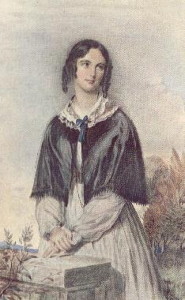 Charlotte Yonge is one of the most influential and important of Victorian women writers; but study of her work has been handicapped by a tendency to patronise both her and her writing, by the vast number of her publications and by a shortage of information about her professional career. Scholars have had to depend mainly on the work of her first biographer, a loyal disciple, a situation which has long been felt to be unsatisfactory. We hope that this edition of her correspondence will provide for the first time a substantial foundation of facts for the study of her fiction, her historical and educational writing and her journalism, and help to illuminate her biography and also her significance in the cultural and religious history of the Victorian age.
Charlotte Yonge is one of the most influential and important of Victorian women writers; but study of her work has been handicapped by a tendency to patronise both her and her writing, by the vast number of her publications and by a shortage of information about her professional career. Scholars have had to depend mainly on the work of her first biographer, a loyal disciple, a situation which has long been felt to be unsatisfactory. We hope that this edition of her correspondence will provide for the first time a substantial foundation of facts for the study of her fiction, her historical and educational writing and her journalism, and help to illuminate her biography and also her significance in the cultural and religious history of the Victorian age.
Featured Letters...
My dear Miss Smith,
I should be very sorry to let the tardiness of the Monthly Packet stand in the way of your Two Beauties so I hope you will offer them elsewhere, and find them successful. There is such a quiet prettiness about them that I am sure they ought to do. And I always have a sense of guiltiness is keeping a thing so long by me, so that I shall be quite relieved ... continue reading
My dear Irene
Many thanks for your sister’s pretty little poem. I daresay it took great effect at your tea drinking. How much more beautiful Aytoun’s is than Tennyson’s and what a glorious day that was! I could see the bridal train rush by on the LSW, and hear the guns fired at Southampton. Our squire gave beef and beer to each family at home, and there was a grand bonfire on the hill
Thank you so ... continue reading
My dear Miss Yonge I have a hurried note from Miss Martin in which she expresses her gratification at the kindly way in which you have written, and says that 'no doubt you have much right reason on your side', and repeats very much what I said yesterday. I am quite sure she will be satisfied with what you feel free to do in the way of abridgement of those early chapters. But I think ... continue reading
My dear Arthur I shall put your corrections in, I always had I confess believed that Bombastes was in Hudibras, but I ought not to have done so, as I never read it.
As to the Rod being a Celtic word, I did not make away with that because I thought it was curious that the sound should suggest the same idea independently or perhaps by some lingering of the root in the old Italian dialects.
But I ... continue reading
